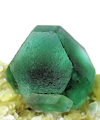| View previous topic :: View next topic |
| Author |
Message |
Tom Mazanec
Joined: 11 Feb 2016
Posts: 139
Location: Twinsburg, Ohio


|
 Posted: Mar 19, 2022 13:24 Post subject: Mineralogist curricula Posted: Mar 19, 2022 13:24 Post subject: Mineralogist curricula |
|
|
| What courses would you recommend for someone who wishes to be a mineralogist? What universities would be good to attend? |
|
| Back to top |
|
 |
alfredo
Site Admin

Joined: 30 Jan 2008
Posts: 1013



|
 Posted: Mar 19, 2022 13:39 Post subject: Re: Mineralogist curricula Posted: Mar 19, 2022 13:39 Post subject: Re: Mineralogist curricula |
|
|
| University of Miami, in Oxford, Ohio. |
|
| Back to top |
|
 |
Carles Millan
Site Admin

Joined: 05 May 2007
Posts: 1537
Location: Catalonia



|
 Posted: Mar 19, 2022 13:45 Post subject: Re: Mineralogist curricula Posted: Mar 19, 2022 13:45 Post subject: Re: Mineralogist curricula |
|
|
| I guess mineralogist is not a profession. It is more of a hobby. However, as you know there are many mineral dealers that make a living, but none of them need to have a university degree. |
|
| Back to top |
|
 |
rweaver
Joined: 13 Apr 2009
Posts: 259
Location: Ridgecrest, California



|
 Posted: Mar 19, 2022 13:50 Post subject: Re: Mineralogist curricula Posted: Mar 19, 2022 13:50 Post subject: Re: Mineralogist curricula |
|
|
| You have the standard three to choice from. Colorado School of Mines, South Dakota School of Mines, or New Mexico Tech. But the University of Arizona (Tucson) would also be a choice. |
|
| Back to top |
|
 |
SteveB
Joined: 12 Oct 2015
Posts: 239
Location: Canberra


|
 Posted: Mar 19, 2022 22:15 Post subject: Re: Mineralogist curricula Posted: Mar 19, 2022 22:15 Post subject: Re: Mineralogist curricula |
|
|
| University of Washington. The famous Nick Zentner teaches geology there. |
|
| Back to top |
|
 |
Cesar M. Salvan
Site Admin
Joined: 09 Jun 2008
Posts: 127
Location: Alcalá de Henares



|
 Posted: Mar 20, 2022 05:59 Post subject: Re: Mineralogist curricula Posted: Mar 20, 2022 05:59 Post subject: Re: Mineralogist curricula |
|
|
| Tom Mazanec wrote: | | What courses would you recommend for someone who wishes to be a mineralogist? What universities would be good to attend? |
That question is pretty much ambiguous. What do you mean with the term "mineralogist"?
Of course there are professional mineralogists: scientists who work on mineralogy at different aspects. I could be considered that, as I am a scientist and working on a specific field within mineralogy (i.e. the study of the chemistry, physics, structures and origins of minerals).
To become a scientist working in mineralogy, first you need to be chemist, geologist or mining engineer, for example (I am chemist, and a lot of scientists working on minerals are chemists, not geologists), and engage in research involving minerals. The problem is that scientific mineralogy is not what amateur mineralogists have usually in mind. Is not about beautiful specimens, shows, magazines with mineral p0rn, and so on. Is about long laboratory hours, scientific papers that are not usually interesting for amateur mineralogists, collections of ugly rocks, vials with powders, and polished sections, instead of beautiful sexy crystallized specimens. But there is a lot of intersection, of course.
According to the definition of mineralogy, all those engaged in the study of minerals at any level is a mineralogist. So, a lot of mineral enthusiasts and collectors are actually mineralogists. Anyone that creates knowledge or cultural contents on minerals (as reports of the descriptions of mineral species in a locality or deposit) is a mineralogist. In this sense, to become a mineralogist what you need is to read and study. Learn as much as you can, read the magazines, read books about minerals, attend courses or talks, etc. A lot of universities offer activities in several aspects of mineralogy.
But first, what do you mean with 'to be a mineralogist' and what do you want for you? |
|
| Back to top |
|
 |
|





